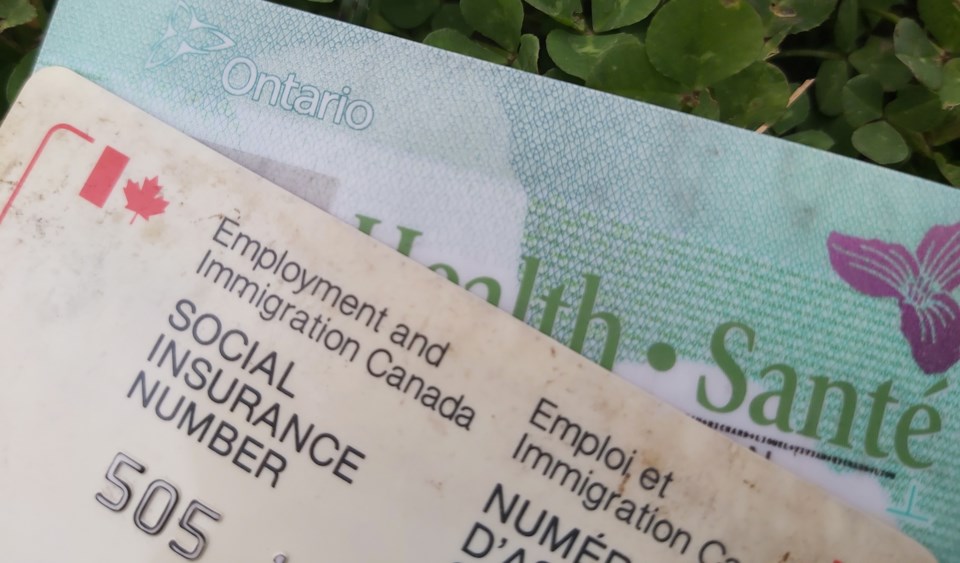Without government-issued identification, accessing even basic services like health care can be a daunting task.
Replacing lost ID, or getting it for the first time, is often a frustrating experience with many barriers, especially for people with no fixed address, says Lindsey Sodtke of Guelph Community Health Centre (GCHC).
That’s why GCHC is home to an ID Bank, which keeps peoples’ cards safe and sound until they need it.
“It’s an incredible service to be able to offer when you see first hand the barriers that exist in the system,” Sodtke said, explaining, for example, the absence of a birth certificate means you can’t get a health card. “That can be a huge barrier then to accessing many other wraparound services and supports.
“For the average person, some of these may not seem like huge challenges, but the reality is for some people they’re significant obstacles in their lives.”
For the past decade or more, prior to the pandemic, GCHC offered an ID clinic at its downtown office (176 Wyndham St. N.) where people could walk-in on Wednesday mornings to get help figuring out what paperwork needed to be completed, filling it out and submitting it - even without a fixed address, which is typically required.
Sometimes it covers the cost too.
“We know cost can be a barrier for folks,” Sodtke said. “We try to have it as uncomplicated a process as possible.”
Shortly before the pandemic hit, GCHC eliminated the clinic in favour of offering aid anytime during business hours – 9 a.m. to 5 p.m. seven days per week – which has helped meet physical distancing requirements and other health measures.
Sodtke said weekly ID clinics often saw 10 to 15 people seeking help. Currently, it’s in the range of seven to 10 per week.
The bank was established about two years ago in response to stories clients shared about additional challenges they faced with their ID.
“Without a stable environment to be staying in, it can be quite difficult to hang onto belongings and in particular ID,” Sodtke said. “If you’re carrying all of your belongings with you at all times, you can easily misplace a bag or an item.”
With the ID Bank, “they can come and sign it in and out as they need, within our business hours,” she explained, noting IDs are kept in locked files.
“We can also provide them with a copy of their ID if they’d like and keep their original on file.”
Dominica McPherson, coordinator for the Guelph & Wellington Task Force for Poverty Elimination, believes the ID Bank provides an “important service,” especially to people experiencing homelessness.
“There are members of our community … who face barriers to accessing ID and need somewhere safe to store it,” she said in an email.
Another advantage of GCHC’s ID assistance efforts, Sodtke said, is that they offer an “entry point” to connecting people with support services and programs that could improve their situation.
“Being able to support someone, to alleviate any of the burden that they may be experiencing in their life … feels at times like a gift to be able to share in someone’s life in that way,” she said.
“It’s amazing to be able to offer something that may seem like such a small piece to the average person, but in reality can have such a meaningful and significant impact on someone’s life.”
